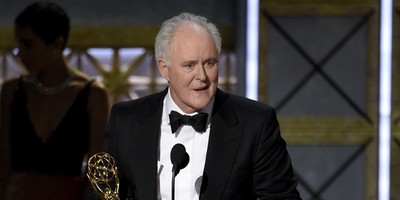Politics has increasingly become, for many Americans, the leisure of the theory class. That's a phrase from the early 20th century sociologist Thorstein Veblen, which I turned on its head in a recent column. He was condemning the showy consumerism of the contemporary rich for having no economically practical purpose. I, on the other hand, was describing the political preoccupations of contemporary people, mainly high-education liberals but also low-education populists, as having no practically achievable goals.
One prime example is the abortion question, which was brought into the political foreground by the leaking of Supreme Court Justice Samuel Alito's draft opinion overturning Roe v. Wade. Within 30 days, we'll see whether this view prevails.
But for most voters, abortion is, increasingly, an abstract concern. Statistics compiled by the pro-abortion rights Guttmacher Institute, and largely relied upon by those with other views, too, show that the abortion rate, or the number of abortions per woman ages 15 to 44, peaked in 1980, just seven years after Roe was handed down. That's 41 years go. The absolute number of annual abortions in the United States peaked in 1990, 31 years ago, even though the national population has since increased from 250 million to 330 million.
The number of abortions will not go down to zero, whatever the Supreme Court does. Contrary to much of the rhetoric on the pro-abortion rights side, the reversal of Roe would not outlaw abortion nationally but would only allow states to restrict or prohibit it.
Some will do so. Oklahoma has passed a bill outlawing abortion, and the Mississippi statute before the Supreme Court limits abortions after 15 weeks of pregnancy -- a restriction similar to those in most European countries.
But states where the vast majority of abortions have been performed in recent years, about 80%, are, if anything, moving in the other direction, even legalizing abortion until the moment of birth -- something that goes much further than what Roe has required.
Recommended
There aren't likely to be many ninth-month abortions, but liberals' sudden insistence on legalizing them is evidence that abortion is a theoretical rather than a practical issue for many abortion rights advocates and voters.
Another theoretical issue that ranks high with liberal voters, according to analyst Amy Walter, is climate change, or global warming if you prefer the older name. They support policies that impose large short-term costs on society for an unquantifiable benefit in the very long-term future. I say unquantifiable because climate scientists' models, like those of epidemiologists, produce widely variable results depending on assumptions.
The problem for the liberals on the ballot this fall is that the short-term costs are highly visible at every gas pump while the benefits recede into an ever-more-theoretical future.
Meanwhile, the recent school shootings in Buffalo, New York, and Uvalde, Texas, have liberals demanding new gun control measures, even though it is not clear that any of their proposals would have prevented these heartbreaking but rare crimes. Many liberal politicians and voters in their hearts would like America to be a gun-free country. That goal will never be more than theoretical in a country with widespread gun ownership and the Second Amendment.
Having a large bloc of high-education voters has some negative consequences. Such voters, argued Democratic consultant David Shor, are "more ideologically consistent," with theory pushing their side toward unpopular positions. Presidents Bill Clinton, Barack Obama and, yes, Joe Biden were not elected by promising to legalize ninth-month abortions, shut down fossil fuel production, confiscate guns and defund the police. But such policies are supported and advanced by many Democratic officeholders in response to their demands.
"Somehow, in my lifetime, the Democrats have gone from being the party of the factory floor to being the party of the faculty lounge," Clinton adviser Paul Begala said. That is to say, from a party pursuing tangible things such as higher wages and protection of Social Security to one pursuing theoretical will-o'-the-wisps.
Similarly, white college graduates have changed. In the 1980s, they voted overwhelmingly for Reagan Republicans who cut, or refused to raise, their taxes. But in the 1990s, they turned to more theoretical areas, such as abortion and gun control. Now, 30 years later, they or their offspring have become the dominant voices of the Democratic Party.
Some of this taste for theoretical politics among progressive Democrats can be found among populist Republicans, too. The re-litigation of the 2020 election is a theoretical problem -- an impossible goal. So were many of former President Donald Trump's signature policies if you, like his former fan Ann Coulter, regard him as "all talk, no action."
Perhaps there's consolation in the thought that only a nation as free and prosperous as ours can afford politics as the leisure of the theory class, with all of the inevitable frustrations and acrimony that go along with that. But maybe a politics focused on concrete, achievable goals would work better.

























Join the conversation as a VIP Member